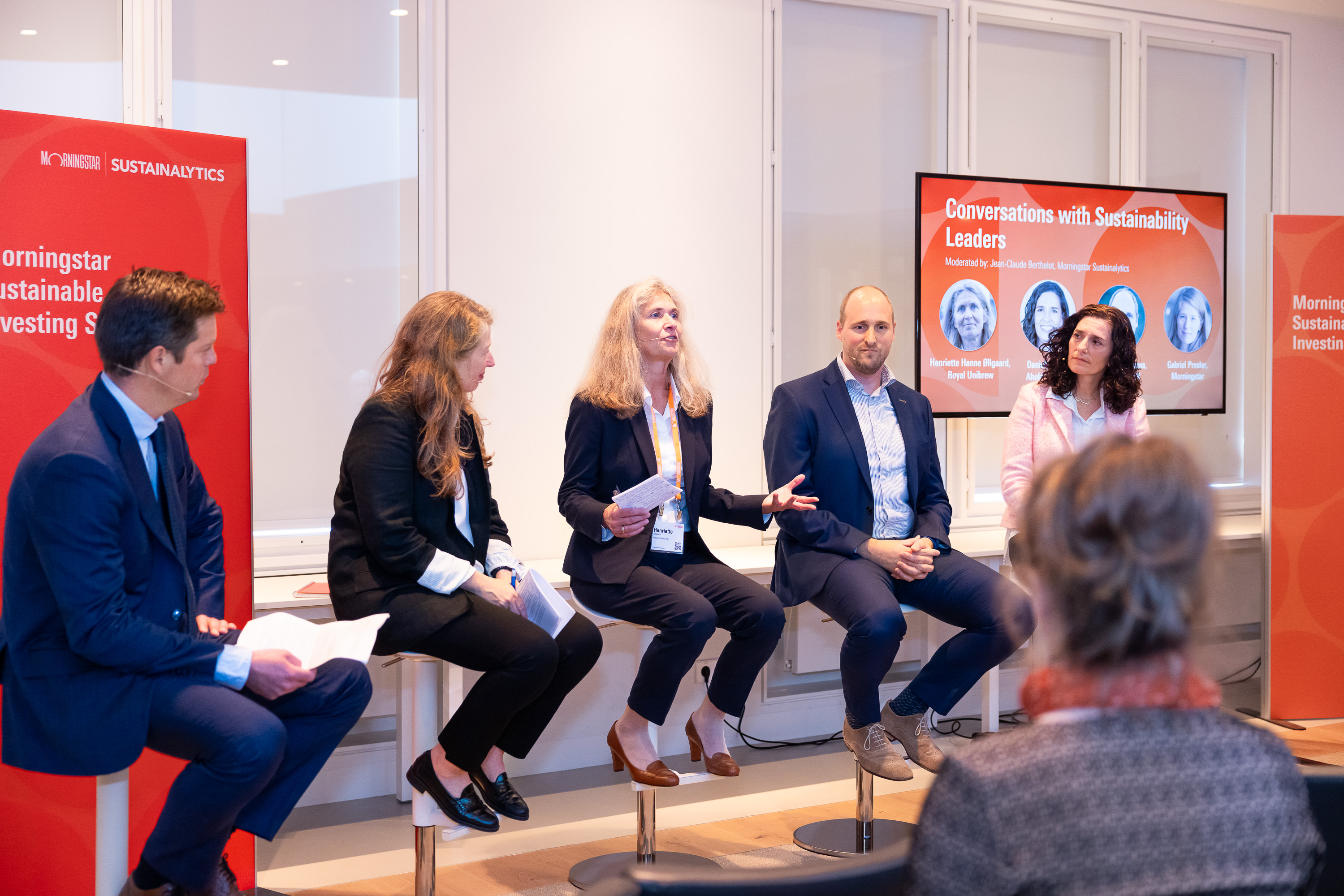In early October, Morningstar hosted the second annual Sustainable Investing Summit in Amsterdam, bringing together major institutional clients, investors, and asset managers from around the world. Over 300 industry leaders participated in discussions about climate transition, net-zero goals, and driving impact in sustainable finance.
This year, the conference widened its audience, welcoming corporate sustainability leaders to an inaugural corporate track to discuss the challenges and opportunities facing corporate strategists who juggle the needs of multiple stakeholders, shifting regulations, and new demands for transparency in a firm’s supply chain, business operations, and human capital management.
The conversations were wide-ranging, but three themes emerged.




